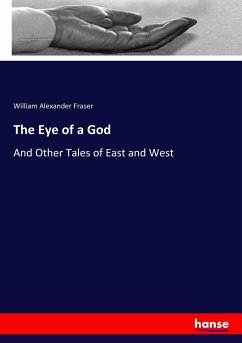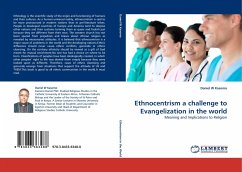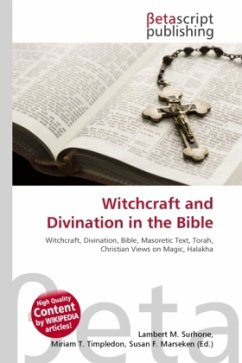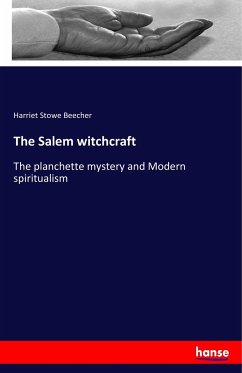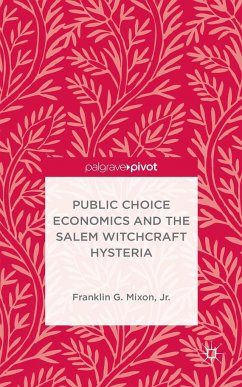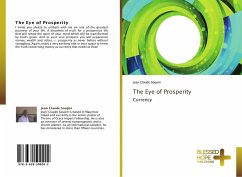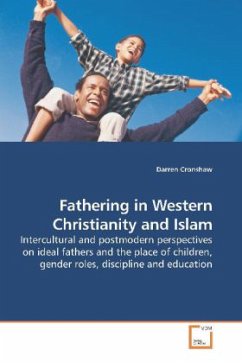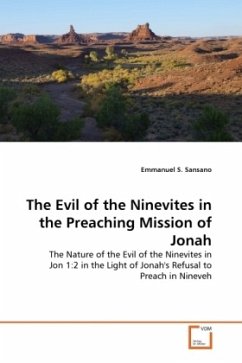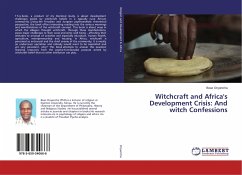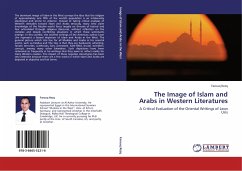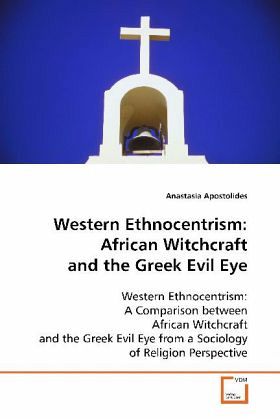
Western Ethnocentrism : African Witchcraft and the Greek Evil Eye
Western Ethnocentrism : A Comparison between African Witchcraft and the Greek Evil Eye from a Sociology of Religion Perspective
Versandkostenfrei!
Versandfertig in 6-10 Tagen
32,99 €
inkl. MwSt.

PAYBACK Punkte
16 °P sammeln!
In Africa there is a significant problem between Christianity and witchcraft as Westerners regard witchcraft as a superstition. A study was done between African witchcraft and the Greek evil eye to investigate if these two cultures still believe in these "superstitions", due to similar reasons. For the Greek people Satan is a real being, that can influence the ability of some people to cause harm to other people by looking at them. For African people witchcraft and the demonic are a reality that threatens their daily lives. In Africa, missionaries believe that by educating the people they will...
In Africa there is a significant problem between
Christianity and witchcraft as Westerners regard
witchcraft as a superstition. A study was done
between African witchcraft and the Greek evil eye to
investigate if these two cultures still believe in
these "superstitions", due to similar reasons. For
the Greek people Satan is a real being, that can
influence the ability of some people to cause harm
to other people by looking at them. For African
people witchcraft and the demonic are a reality that
threatens their daily lives. In Africa, missionaries
believe that by educating the people they will do
away with such beliefs. But, is education really
the solution to witchcraft? These "superstitions"
are socially taught. Is it even necessary to get rid
of these beliefs because the West believes that they
are superstitions? Why do these communities still
hold on to such beliefs? This book provides a
systematic analysis of these questions and tries to
answer them. It should be of interest to academics,
students and those interested to find a solution to
the problems faced by indigenous peoples trying to
accept Christianity in Africa.
Christianity and witchcraft as Westerners regard
witchcraft as a superstition. A study was done
between African witchcraft and the Greek evil eye to
investigate if these two cultures still believe in
these "superstitions", due to similar reasons. For
the Greek people Satan is a real being, that can
influence the ability of some people to cause harm
to other people by looking at them. For African
people witchcraft and the demonic are a reality that
threatens their daily lives. In Africa, missionaries
believe that by educating the people they will do
away with such beliefs. But, is education really
the solution to witchcraft? These "superstitions"
are socially taught. Is it even necessary to get rid
of these beliefs because the West believes that they
are superstitions? Why do these communities still
hold on to such beliefs? This book provides a
systematic analysis of these questions and tries to
answer them. It should be of interest to academics,
students and those interested to find a solution to
the problems faced by indigenous peoples trying to
accept Christianity in Africa.



